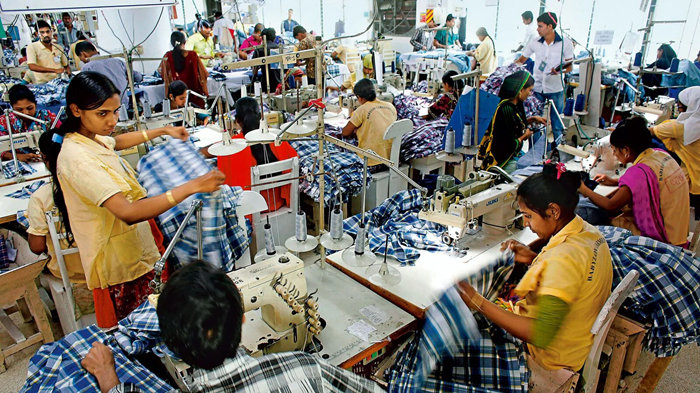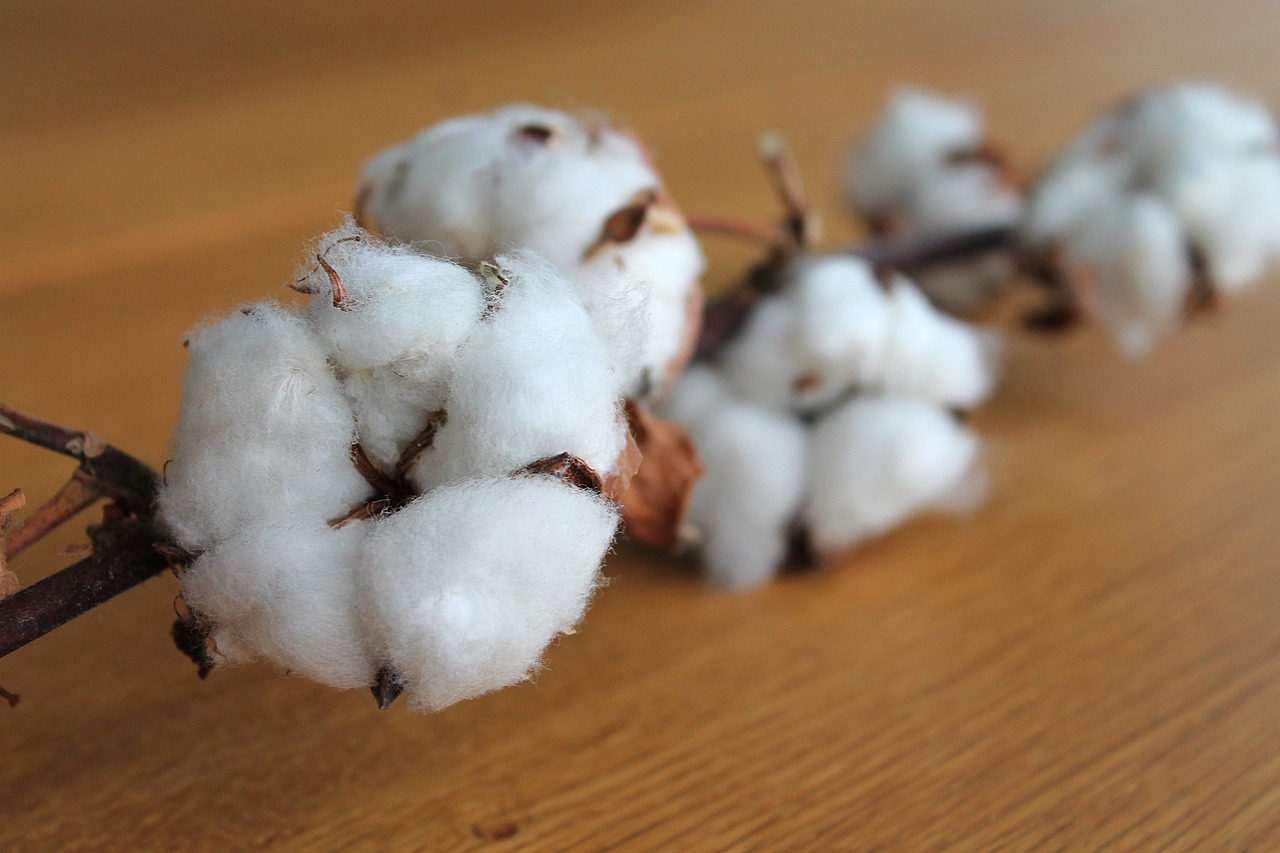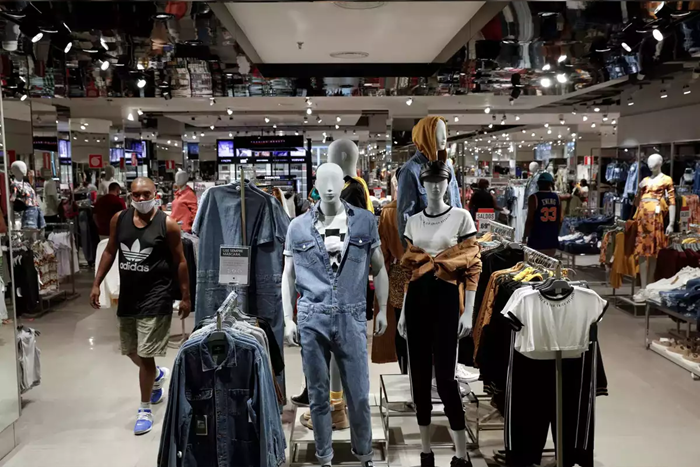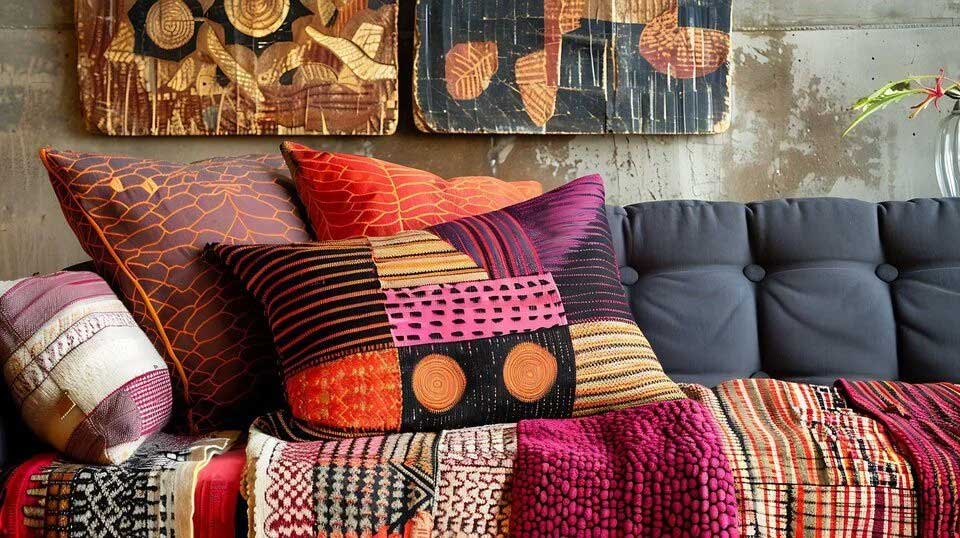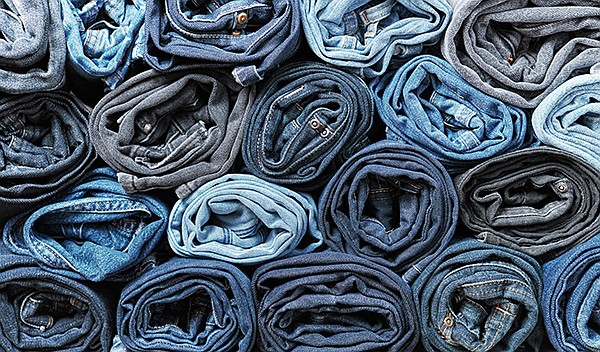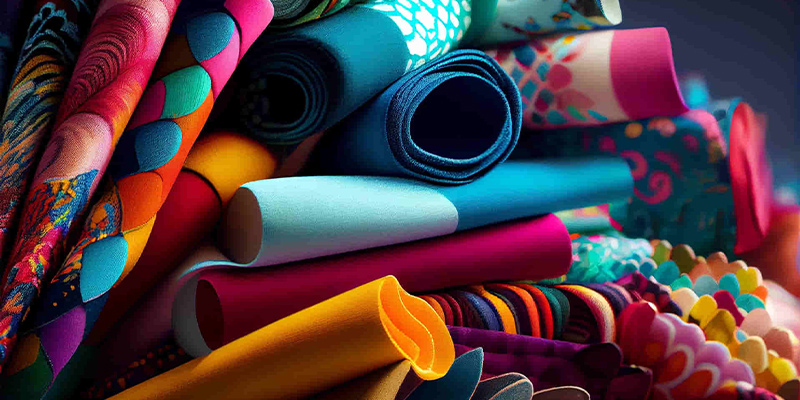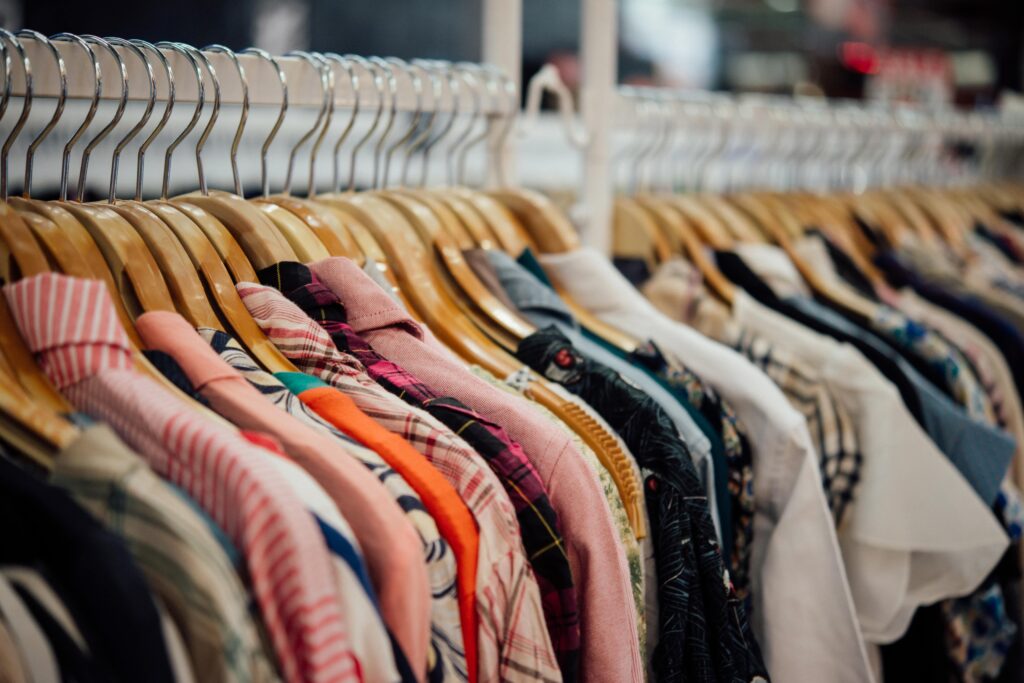FW
Following the footsteps of the largest importer of apparels, the US, now the UK has decided to focus on bringing mass-market garment production back to the country. However, experts speaking on the subject at the recent ASBCI conference 'Making it in the UK - Ready or not?' expressed that there are still challenges to overcome if the 'Made in Britain' movement.
Today, more than 100,000 people are employed in the UK textile industry compared with 340,000 at the end of the millennium. Yet clothing manufacturers produced £3.2 billion at cost during 2012, up from £2.9 billion in 2008. Domestic manufacturing in the UK seems to be back on track again owing to rising labour costs and freight charges in overseas destinations, China concentrating on domestic consumption and difficulty in sourcing raw materials.
Another reason behind the trend is the customers asking for original British fashion and growing environmental and ethical concerns over 'sweatshop' style workplaces in foreign locations from where the country imports. Basic Thinking, which makes women’s and children’s fast fashion clothing, for instance has decided to focus on production back in the UK. Earlier, the Leicester-based firm manufactured its requirements from its vertical operation in Egypt with an average lead time of eight weeks FOB but now, the company only manufactures 20 per cent of its product in Egypt with lead times between two and four weeks, and 80 per cent of its garments in the UK.
However, it’s just the beginning with 60 per cent of the UK's clothing workforce over 40 years old and young showing no interest in working for the textile manufacturing unit, the industry would face obstacles in setting up manufacturing operations in the UK. Basic Thinking, in conjunction with training provider KTL, has set up its own sewing academy, which plans to enroll unemployed people on the course starting next month. Also Fashion Enter, a not-for-profit social enterprise, is developing skills within the country's fashion and textiles industry with its stitching academy and factory.
With the country investing only 1.5 per cent of its manufacturing investment in the clothing, textile and leather industries over the past few years, there’s definitely a long way to go.
APTMA Punjab, Chairman has asked the Indian ministry of commerce and ministry of textile industry and Cotton Export Corporation India to implement strict measures on the Wagha border to strengthen trade. Confidence-Building Measures (CBM) in the interest of trade relations of Pakistan and India, as the organization has found an abnormal weight variation of cotton bales being imported from India through the border.
The Chairman of APTMA Punjab, S M Tanveer has pointed out that Pakistani importers of Indian cotton have witnessed almost 20 kg reduction per bale imported from India. And they have lodged complaints with the association about the unfair trade practices on the Indian side. In normal trade practice, a weight variation of one to five kg per bale is acceptable due to the drying up of moisture content.
Around the time, when both the countries wish to improve their trade relations and since India is a major exporter of cotton to Pakistan, the industry has asked the Indian authorities to immediately look into and curb the unfair trade practices going on the side of India border.
www.aptma.org.pk
Readymade garment exporters of Bangladesh are looking to diversifying their market. Reason: Their traditional export destinations, the EU and the US, are laying down stringent conditions related to workplace safety and labor rights. With a view to explore newer markets, the Bangladesh Garment Manufacturers and Exporters Association (BGMEA) and the Bangladesh Knitwear Manufacturers and Exporters Association (BKMEA) are planning to organize single country fairs both in and outside Dhaka and organize networking exchange and business tours.
The BGMEA will organize single country fairs for Indian and Chinese apparel buyers, buying houses and trade body representatives and other related traders in April and June. It's also planning to hold such expos for South Korea, South Africa, Russia and Mexico this year while the BKMEA will hold fairs focusing on the Latin America, Brazil and Chile markets by 2014. The expos will display Bangladesh products and services to attract Indian and Chinese buyers and their representatives and further business development.
Diversification of markets and products is also important to reduce different business risks that emerge due to recession and a series of industrial tragedies that have seriously highlighted safety issues in the garment sector.
www.bgmea.com.bd/, www.bkmea.com/
Work orders from international buyers are picking up with the return of political stability in Bangladesh after the January 5 national elections. Garment makers aim to achieve their export growth target at the end of the year if there are no further political upheavals.
Bangladesh, the second largest garment exporter after China, shipped knitwear items worth $7 billion and $7.18 billion of woven items, a year-on-year growth of 18.13 per cent and 17.32 per cent in July to January. The country shipped more than $2.24 billion of clothing overseas in January, 7.09 per cent more than a year ago period. This advance marks the 18th year-on-year increase in the last 19 months, buoyed by gains in exports of both woven and knitwear.
With Bangladesh tentatively on track to ship an unprecedented amount of clothing in 2014, and it will import record amounts of both textiles and cotton in response. Given that the country grows little cotton of its own, the local textile and apparel sector is almost entirely dependent on imports of the fiber. Cotton consumption in Bangladesh may rise 8.75 per cent in fiscal 2014-15.
However Bangladesh will face challenges in the European market as the European Union has awarded trade preferences to Pakistan as well for the same products.
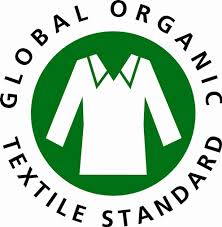 The Global Organic Textile Standard (GOTS) International Working Group has released Version 4.0 of the worldwide recognized standard for processing of textiles made from at least 70 per cent or 95 per cent certified organic natural fibers. GOTS' core provisions such as the 70 per cent minimum content of certified organic fibers, the general ban on the use of substances from disputed techniques such as genetic engineering and nanotechnology, as well as carcinogenic substances, have been maintained in the new version. There are modified rules on permissible conventional ‘additional fiber materials’: these now may consist of regenerated, respective synthetic fibers -- up to 30 per cent -- provided they are environmentally-improved and certified. For regenerated fibers this means that the raw material must be from certified organic production, sustainable forestry management, or be certified recycled. For synthetic fibers, the raw material must be recycled and also certified according to recognized standards.
The Global Organic Textile Standard (GOTS) International Working Group has released Version 4.0 of the worldwide recognized standard for processing of textiles made from at least 70 per cent or 95 per cent certified organic natural fibers. GOTS' core provisions such as the 70 per cent minimum content of certified organic fibers, the general ban on the use of substances from disputed techniques such as genetic engineering and nanotechnology, as well as carcinogenic substances, have been maintained in the new version. There are modified rules on permissible conventional ‘additional fiber materials’: these now may consist of regenerated, respective synthetic fibers -- up to 30 per cent -- provided they are environmentally-improved and certified. For regenerated fibers this means that the raw material must be from certified organic production, sustainable forestry management, or be certified recycled. For synthetic fibers, the raw material must be recycled and also certified according to recognized standards.
In the future, textile manufacturers will have a larger choice of fiber mixes if they also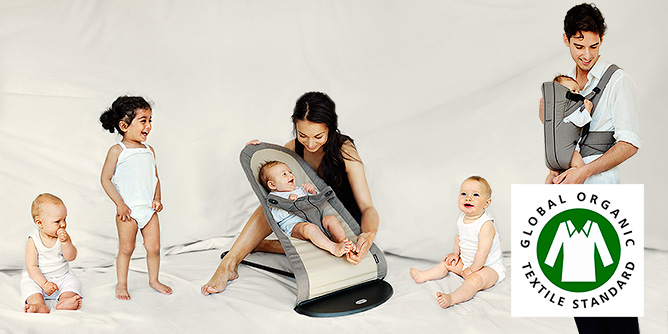
use the environmentally-improved variants of regenerated and synthetic fibers. A wider product selection of GOTS-certified products will be made possible which will also support the increased use of organic fibers. In addition, the use of virgin polyester and angora is banned.
Processing is also regulated more strictly. As in every revision process, the latest insights regarding textile chemistry and residue testing methods were considered and various applicable criteria and limit values were reinforced. The already extensive list of banned substances and strict residue parameters was further extended. This will point out more clearly that all substances criticized by Greenpeace in their ‘Detox Campaign’ remain banned in GOTS. New criteria were adopted for specific product groups, such as textile personal care products or mattresses.
The GOTS social criteria are based on the International Labor Organization (ILO) key conventions, which include ban on child labor. The audit areas that need to be covered by the auditors during the on-site inspections were further specified. The GOTS 4.0 now expressly stipulates programs or certifications with the results considered during the GOTS inspection: Fair Wear Foundation (FWF), Social Accountability 8000 (SA800), Worldwide Responsible Accredited Production (WRAP) and the Business Social Compliance Initiative (BSCI). Fire prevention training and evacuation drills were added to the existing health and safety training requirements. The implementation period for GOTS certified entities to comply with the new criteria is one year after the announcement.
The Top 20 countries in terms of the total number of GOTS-certified facilities were (by rank): India, Turkey, Germany, China, South Korea, Italy, Pakistan, Bangladesh, Japan, Portugal, France, United Kingdom, United States, Austria, Switzerland, Netherlands, Greece, Denmark, Belgium and Sri Lanka.
www.global-standard.com
The testing laboratory of the Bangladesh Garment Manufacturers and Exporters Association (BGMEA) has obtained a certificate from India’s National Accreditation Board for testing and calibration Laboratories (NABL). The certificate relates to chemical and mechanical parameter tests of BGMEA. With this certificate BGMEA has advanced a step ahead in international quality control of textile products.
The lab provides service for local and international buyers at a lower rate. BGMEA spends 10 per cent of the profits for the welfare of workers of the readymade garment sector. BGMEA works to protect and promote the interest of the garment industry, ensuring a sustained growth in foreign exchange earnings of the country. It maintains liaison with foreign buyers, business associations and chambers. It gives local manufactures opportunities to interact with foreign buyers. It has its own Institute, the BGMEA Institute of Fashion & Technology.
The association organizes trade missions to explore new markets and to facilitate trade in existing markets. It undertakes a number of regular activities and projects to ensure workers’ rights, social and environmental compliance and welfare. It plans to develop a central database system for workers of the readymade garment sector.
www.bgmea.com.bd/
Pakistan feels the GSP (Generalised System of Preference) Plus status will boost the country’s business with European countries and enable it to develop almost all sectors of the economy including leather and sports goods. GSP Plus is seen as demonstrating the trust and confidence of EU countries in the quality and competitiveness of Pakistan’s goods and products. The GSP Plus scheme is not only expected to boost Pakistan's exports to EU but would also strengthen its economy through greater trade, increased economic activities and creating employment opportunities for local people.
The country’s value-added sector needs to modernise its operational system. Trade and industrial sectors would have to adopt modern systems of computerised delivery besides paying proper attention to export growth in volume by making its space in European markets. Pakistan has a free trade agreement with Malaysia and China. The All Pakistan Bedsheet and Upholstery Manufacturers Association (APBUMA) has expressed reservations and fears about this trade agreement and bilateral trade with India. Following the FTA with China, Pakistani markets have been flooded with Chinese products. And with a proposed agreement on bilateral trade with India, APBUMA fears India can dump its cheap yarn in Pakistan.
Trade unions in Cambodia are putting the garment and shoe industries under pressure by demanding unreasonably high wages. Eight opposition-aligned trade unions have called for a garment strike from March 12 to 19 to demand a minimum wage of $160 for workers and the release of 21 detainees who were arrested on January 3 during violent protests. The eight trade unions represent about 2,00,000 of the 6,00,000 workers in more than 900 garment and shoe factories in Cambodia. The garment and shoe industry is the country’s largest foreign exchange earner, generating about $5.53 billion in revenues last year.
The current minimum wages for Cambodian garment workers are US$100 a month, up from UA$80 dollars last year. These wages are higher than those of Laos, Bangladesh, India, Nepal and Myanmar. Although the Labor Advisory Committee had already decided on the new minimum wage by a majority vote, minority and violent unions continue with daily threat of strikes, demonstrations and disruption of the workplace.
Many factories have reported a reduction in orders starting from April this year as buyers now consider Cambodia as a high-risk country. Ultimately it will be Cambodian workers who will be the hardest hit.
The Secondary Materials and Recycled Textiles association (SMART) is gathering from March 1 to 4 at Arizona, US, to spread awareness about the benefits of clothing and textile recycling. Each year more than 13 million tons of recyclable clothing and textiles are dumped into America’s landfills while only 15.3 per cent is reused or recycled.
SMART is an association for-profit clothing and textile recyclers. It drives the clothing and textile recycling industry. Its member companies work every day to divert used clothing and household textiles out of municipal landfills and into re-use and recycling programs. More than 95 per cent of all clothing and textiles can be re-used or recycled. As long as an item is odor-free and dry, even if it is stained or torn, there is use for it in the world of textile recycling.
This year’s conference focuses on educating executives from SMART’s member companies on how to work with local governments to successfully regulate clothing collection bins in their community. SMART is the leading voice of the clothing recycling industry. According to the US Environmental Protection Agency, recycling textiles has a greater impact on reducing greenhouse gases than recycling other household materials.
Apparel makers in Bangladesh have expressed reservations about incorporating key information, especially on factory inspection and trader profiles, in the proposed database. They fear their business secrets may leak out. Instead, they want to make public the information on some selective areas in consultation with apparel sector stakeholders and allow limited access to the database.
Leaders of the country’s apparel sector raised their objection to the idea of making their crucial business information publicly accessible in meetings with foreign buyers and government officials on different occasions. They say if the inspection report of a factory was made public, it may damage the business of a factory, because it might drive away its buyers. They suggest the factory should be given a remediation period and in the event of its failure to attain the required level of improvement within the time frame the inspection report could be made public.
Experts have also backed apparel makers’ views about inclusion of the core business information and inspection reports in the database. They, however, feel all trade union-related information should be made public through inclusion in the database. They also suggested government monitoring of the whole process centrally.

